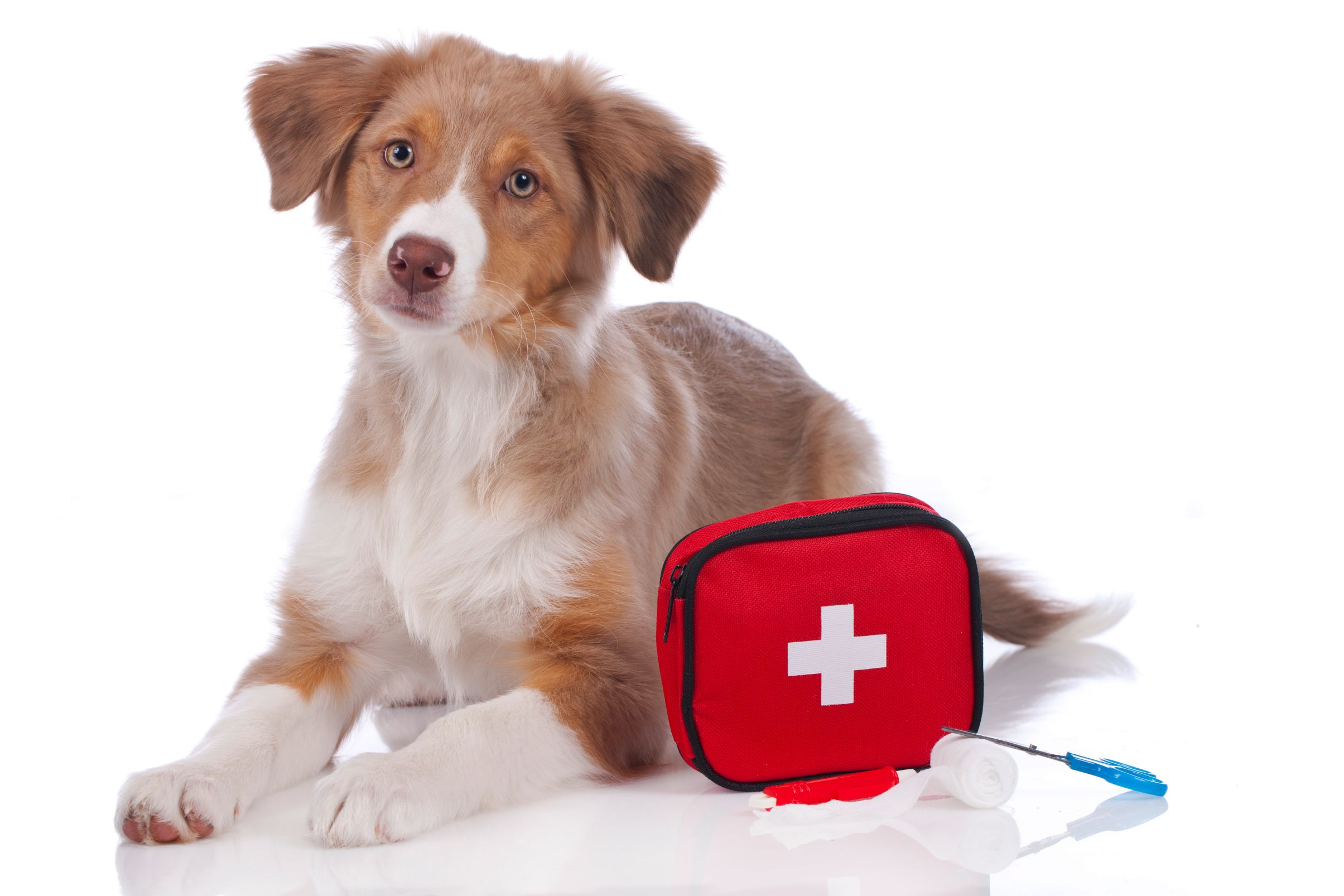How to Make Your Own Pet First-Aid Kit
Injuries and accidents are a fact of life, and being prepared can prevent a minor pet injury from escalating into something more serious. You can find first-aid kits for four-legged family members already assembled, but it’s easy to make one yourself that is customized to your pet’s needs.
At Sunrise Boulevard Animal Hospital, we take pet safety seriously. A pet first-aid kit is an important addition to your household and a vital tool when traveling with your pet.
Read on for a breakdown of the basics that your pet first-aid kit should contain.
Emergency Contacts and Information
Keep these names and numbers on a card in the pet first-aid kit:
- Your veterinarian
- Nearby 24-hour emergency hospital
- ASPCA Animal Poison Control Center: (888) 426-4435
Other helpful information: vaccination records and current medications
Medical Supplies/Wound Care
- A leash (in case your dog is able to walk) and muzzle in case he lashes out from distress
- Towels/blankets for comfort and warmth. Can also be used as a way to move your pet if he can’t walk.
- Latex-free disposable gloves to protect you and your pet from contamination
- Blunt-tipped scissors for cutting away fur and trimming gauze and tape
- Tweezers for removing foreign objects
- OTC antibiotic ointment
- Alcohol wipes
- Sterile saline for wound cleaning
- Styptic powder to stop mild bleeding
- Eye wash
- Gauze pads, bandage tape, or self-cling bandage wrap made just for pets (Do not use human Band-Aids® or similar products on pets.)
- Plastic eye dropper or large syringe without needle for flushing wounds or administering fluids
Medications
Because many household products and people foods are poisonous to pets, keep these medications in your pet first-aid kit, but NEVER administer them without permission from your veterinarian or poison control center:
- Hydrogen peroxide to induce vomiting
- Milk of magnesia or activated charcoal to absorb poison in the stomach
- Benadryl to treat an allergic reaction
Dog CPR/Cat CPR
If you find yourself in a situation with a pet that has stopped breathing, knowing how to perform dog CPR or cat CPR can make all the difference in the world. The first thing to do is contact your veterinarian or the nearest emergency clinic for instructions, and they can walk you through how to perform life-saving measures until you get to a hospital.
The following resources provide information about pet CPR:
Emergencies Happen
Pets are unpredictable, and accidents happen. In an emergency situation, remain calm and contact your veterinarian right away. Being prepared in advance to administer basic pet first aid can help protect your pet from infection or further injury until you get your pet to the hospital for treatment and diagnosis.
Please contact us if you have questions about administering pet first aid or if your pet experiences a medical emergency.

